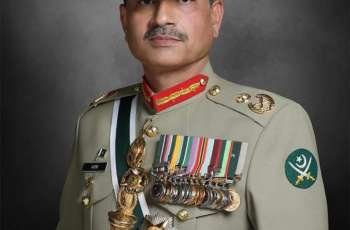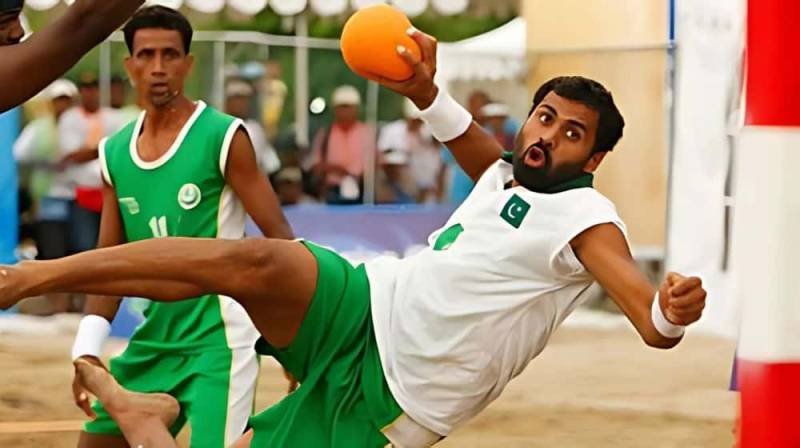Table of Contents
ToggleCOAS Asim Munir Addresses 52nd CTP: Emphasizes National Security, Internal Unity, and Civil-Military Collaboration patriotism
By Zarmeen Zehra | June 27, 2025
RAWALPINDI: Field Marshal Syed Asim Munir, Chief of Army Staff (COAS), delivered a compelling and comprehensive address to the probationary officers of the 52nd Common Training Programme (CTP) of the Civil Services Academy at the Army Auditorium in Rawalpindi. The event, held on Thursday, was a key part of a broader national initiative aimed at fostering inter-institutional understanding and bridging the civil-military divide to strengthen Pakistan’s governance and national resilience patriotism.
In his address, COAS Munir touched upon a range of pivotal topics including national security imperatives, evolving regional and global challenges, internal threats, and the dynamic role of the Pakistan Armed Forces in shaping the country’s strategic direction. The session, enriched with firsthand military exposure and candid dialogue, emphasized the critical need for integrity, professionalism, and unity of purpose among Pakistan’s future leadership patriotism.
A Symbolic and Strategic Gathering
The session brought together some of the brightest young minds entering Pakistan’s civil services. These officers, chosen through a rigorous examination and training process, are expected to become key architects of national policy and administrative machinery. Their meeting with the highest-ranking military officer in the country symbolized the need for synergy between the country’s top institutions patriotism.
The Civil Services Academy’s 52nd CTP had undergone months of training and attachment with different military units across Azad Jammu and Kashmir, Khyber Pakhtunkhwa, and Balochistan. These field visits gave the officers a practical understanding of the Army’s role in conflict and peace-time operations, humanitarian relief, and national reconstruction efforts. The gathering at Rawalpindi served as a culminating point where these learnings were reflected upon and expanded through interaction with senior military leadership. patriotism.
Upholding Values in Public Service
Addressing the officers, Field Marshal Asim Munir began by congratulating them on their selection into the civil services. He acknowledged the tough journey they had undertaken and emphasized that their service to Pakistan must now be guided by the highest principles of professionalism, dedication, and moral uprightness.
“Public service is not just a career—it is a commitment to the people of Pakistan. The future of this nation rests in the hands of capable, patriotic, and service-driven individuals who place national interest above personal gain,” said the COAS patriotism.
He reminded the young officers that the challenges facing Pakistan are multifaceted and require a collective, coordinated, and forward-looking response from all arms of the state. He called upon them to resist the temptations of corruption, lethargy, and partisanship and to uphold the Constitution and law in every decision they make patriotism.
National Security: Internal and External Dimensions
A major portion of the COAS’s address was devoted to national security—a subject that has become increasingly complex in the face of evolving regional tensions, global geopolitical realignments, and emerging hybrid threats.
He discussed Pakistan’s strategic environment in the context of instability in neighboring regions, unresolved border issues, and the enduring threat posed by terrorism and extremist ideologies. He also addressed the economic vulnerabilities that often impact national security, underlining how weak institutions and political disunity can become internal threats. patriotism.Field Marshal Munir emphasized that the traditional concepts of warfare are rapidly evolving. “In today’s world, security is no longer defined by borders alone. It includes economic security, food security, information warfare, cyber threats, and the cohesion of society,” he explained patriotism.
He said the armed forces of Pakistan are fully alert and prepared to respond to external aggression but added that true national security also depends on internal unity, good governance, and the strength of civilian institutions
patriotism.
Strengthening Civil-Military Synergy
A central theme of the COAS’s address was the importance of strong, respectful, and institutionalized civil-military relations. He highlighted that neither the civil administration nor the military can achieve national goals in isolation patriotism.
He explained that cooperation between the two institutions is not about encroachment of one upon the other, but rather about harmonizing efforts for the country’s collective progress. “We must work hand in hand, respecting each other’s roles and limitations, to address the challenges that threaten our state and society,” he noted patriotism.
He pointed out that Pakistan’s history shows periods where lack of coordination between civilian and military institutions has resulted in misgovernance, instability, and weakened national resilience. “A state divided within itself cannot withstand external pressures,” he warned patriotism.
A Capable Bureaucracy as a Pillar of Governance
Field Marshal Asim Munir stressed that the bureaucracy plays a foundational role in the governance structure of Pakistan. He called for a service culture that places citizens at the heart of decision-making processes and public policies.
“Without a transparent, efficient, and responsive civil service, even the best national security frameworks will collapse under administrative inefficiency,” the COAS asserted. He also emphasized that Pakistan’s civil service must embrace meritocracy, innovation, and accountability patriotism.
He urged young officers to act as bridges between the people and the state, ensuring that governance reaches even the most remote and underserved areas of the country patriotism.
A Symbolic and Strategic Gathering
The session brought together some of the brightest young minds entering Pakistan’s civil services. These officers, chosen through a rigorous examination and training process, are expected to become key architects of national policy and administrative machinery. Their meeting with the highest-ranking military officer in the country symbolized the need for synergy between the country’s top institutions patriotism.
The Civil Services Academy’s 52nd CTP had undergone months of training and attachment with different military units across Azad Jammu and Kashmir, Khyber Pakhtunkhwa, and Balochistan. These field visits gave the officers a practical understanding of the Army’s role in conflict and peace-time operations, humanitarian relief, and national reconstruction efforts. The gathering at Rawalpindi served as a culminating point where these learnings were reflected upon and expanded through interaction with senior military leadership patriotism.
Upholding Values in Public Service
Addressing the officers, Field Marshal Asim Munir began by congratulating them on their selection into the civil services. He acknowledged the tough journey they had undertaken and emphasized that their service to Pakistan must now be guided by the highest principles of professionalism, dedication, and moral uprightness.
“Public service is not just a career—it is a commitment to the people of Pakistan. The future of this nation rests in the hands of capable, patriotic, and service-driven individuals who place national interest above personal gain,” said the COAS.
He reminded the young officers that the challenges facing Pakistan are multifaceted and require a collective, coordinated, and forward-looking response from all arms of the state. He called upon them to resist the temptations of corruption, lethargy, and partisanship and to uphold the Constitution and law in every decision they make.
National Security: Internal and External Dimensions
A major portion of the COAS’s address was devoted to national security—a subject that has become increasingly complex in the face of evolving regional tensions, global geopolitical realignments, and emerging hybrid threats.
He discussed Pakistan’s strategic environment in the context of instability in neighboring regions, unresolved border issues, and the enduring threat posed by terrorism and extremist ideologies. He also addressed the economic vulnerabilities that often impact national security, underlining how weak institutions and political disunity can become internal threats.
Field Marshal Munir emphasized that the traditional concepts of warfare are rapidly evolving. “In today’s world, security is no longer defined by borders alone. It includes economic security, food security, information warfare, cyber threats, and the cohesion of society,” he explained.
He said the armed forces of Pakistan are fully alert and prepared to respond to external aggression but added that true national security also depends on internal unity, good governance, and the strength of civilian institutions.
Strengthening Civil-Military Synergy
A central theme of the COAS’s address was the importance of strong, respectful, and institutionalized civil-military relations. He highlighted that neither the civil administration nor the military can achieve national goals in isolation.
He explained that cooperation between the two institutions is not about encroachment of one upon the other, but rather about harmonizing efforts for the country’s collective progress. “We must work hand in hand, respecting each other’s roles and limitations, to address the challenges that threaten our state and society,” he noted.
He pointed out that Pakistan’s history shows periods where lack of coordination between civilian and military institutions has resulted in misgovernance, instability, and weakened national resilience. “A state divided within itself cannot withstand external pressures,” he warned.
A Capable Bureaucracy as a Pillar of Governance
Field Marshal Asim Munir stressed that the bureaucracy plays a foundational role in the governance structure of Pakistan. He called for a service culture that places citizens at the heart of decision-making processes and public policies.
“Without a transparent, efficient, and responsive civil service, even the best national security frameworks will collapse under administrative inefficiency,” the COAS asserted. He also emphasized that Pakistan’s civil service must embrace meritocracy, innovation, and accountability.
He urged young officers to act as bridges between the people and the state, ensuring that governance reaches even the most remote and underserved areas of the country.
Regional Peace and Armed Forces’ Strategic Role
Touching upon the military’s role in ensuring regional peace, COAS Munir outlined the ongoing efforts of the Pakistan Army to maintain stability not just within the country’s borders but across South Asia.
He emphasized that while Pakistan desires peace with all its neighbors, including India and Afghanistan, it will never compromise on its sovereignty and core interests. “Peace is not a sign of weakness. It is a strength—derived from a position of preparedness and confidence,” he stated.
He also appreciated the efforts of the armed forces in supporting development projects in underdeveloped regions like Balochistan and merged districts of Khyber Pakhtunkhwa, where security and socio-economic development go hand in hand.
The Role of Youth in Nation-Building
The COAS particularly highlighted the role of youth in shaping Pakistan’s future, noting that the young population represents both a challenge and an opportunity. He called upon the officers to become mentors, change agents, and policy innovators who can harness the potential of Pakistan’s youth for nation-building
“Your leadership will inspire others. If you lead with vision, others will follow with hope,” he said patriotism.
He urged them to promote inclusivity, social cohesion, and responsible citizenship, particularly in a digital age where misinformation and polarization are rapidly spreading patriotism.
Constructive Dialogue and Shared Responsibility
Following his formal remarks, the session transitioned into an engaging question-and-answer segment, where young officers posed questions to the COAS on a variety of topics ranging from internal security to economic reforms, foreign policy, and governance challenges patriotism.
The dialogue reflected a spirit of openness and mutual respect. The officers expressed appreciation for the clarity and depth of insight provided by the COAS and lauded the opportunity to interact with a senior military leader in such a candid setting patriotism.
Several participants noted that the experience helped them better understand the military’s perspective and its broader role in state functioning. Others emphasized that such interactions are essential in overcoming institutional silos and fostering mutual trust patriotism.
___________________________________________________________________________________
India unlawfully expels of Muslims to Bangladesh
Read This Artical
___________________________________________________________________________________
Participants’ Reflections
Many probationary officers shared their experiences of attachment with Army units in sensitive and operational regions. They noted that the exposure gave them a new appreciation of the hardships and sacrifices made by soldiers and officers in the line of duty patriotism.
An officer who had visited units in Balochistan commented, “What impressed me most was the Army’s development work in remote areas—building roads, schools, and healthcare centers. This is nation-building at its most fundamental level.”
Another participant from Lahore added, “The Army’s discipline, its ability to execute missions in the harshest environments, and its unwavering commitment to national interests are lessons we should bring into civil administration. patriotism.
A Vision for the Future
As the session concluded, Field Marshal Munir reminded the young officers that Pakistan is at a critical juncture. The decisions made today will determine the course of the country for generations to come patriotism.
He expressed confidence in the capabilities of the new generation of civil servants and called upon them to become role models of integrity, foresight, and national service. patriotism.
“Pakistan will rise, not because of one leader or one institution, but because of the collective wisdom, courage, and sacrifice of its people—guided by committed public servants like you,” he concluded patriotism.
Regional Peace and Armed Forces’ Strategic Role
Touching upon the military’s role in ensuring regional peace, COAS Munir outlined the ongoing efforts of the Pakistan Army to maintain stability not just within the country’s borders but across South Asia patriotism.
He emphasized that while Pakistan desires peace with all its neighbors, including India and Afghanistan, it will never compromise on its sovereignty and core interests. “Peace is not a sign of weakness. It is a strength—derived from a position of preparedness and confidence,” he stated patriotism.
He also appreciated the efforts of the armed forces in supporting development projects in underdeveloped regions like Balochistan and merged districts of Khyber Pakhtunkhwa, where security and socio-economic development go hand in hand patriotism.
The Role of Youth in Nation-Building
The COAS particularly highlighted the role of youth in shaping Pakistan’s future, noting that the young population represents both a challenge and an opportunity. He called upon the officers to become mentors, change agents, and policy innovators who can harness the potential of Pakistan’s youth for nation-building. patriotism.“Your leadership will inspire others. If you lead with vision, others will follow with hope,” he said patriotism.
He urged them to promote inclusivity, social cohesion, and responsible citizenship, particularly in a digital age where misinformation and polarization are rapidly spreading patriotism.
Constructive Dialogue and Shared Responsibility
Following his formal remarks, the session transitioned into an engaging question-and-answer segment, where young officers posed questions to the COAS on a variety of topics ranging from internal security to economic reforms, foreign policy, and governance challenges patriotism.
The dialogue reflected a spirit of openness and mutual respect. The officers expressed appreciation for the clarity and depth of insight provided by the COAS and lauded the opportunity to interact with a senior military leader in such a candid setting. patriotism.
Several participants noted that the experience helped them better understand the military’s perspective and its broader role in state functioning. Others emphasized that such interactions are essential in overcoming institutional silos and fostering mutual trust patriotism.
Participants’ Reflections
Many probationary officers shared their experiences of attachment with Army units in sensitive and operational regions. They noted that the exposure gave them a new appreciation of the hardships and sacrifices made by soldiers and officers in the line of duty patriotism.
An officer who had visited units in Balochistan commented, “What impressed me most was the Army’s development work in remote areas—building roads, schools, and healthcare centers. This is nation-building at its most fundamental level.”
Another participant from Lahore added, “The Army’s discipline, its ability to execute missions in the harshest environments, and its unwavering commitment to national interests are lessons we should bring into civil administration. patriotism.
A Vision for the Future
As the session concluded, Field Marshal Munir reminded the young officers that Pakistan is at a critical juncture. The decisions made today will determine the course of the country for generations to come patriotism.
He expressed confidence in the capabilities of the new generation of civil servants and called upon them to become role models of integrity, foresight, and national service patriotism.
“Pakistan will rise, not because of one leader or one institution, but because of collective wisdom, courage, and sacrifice of its people—guided by committed public servants like you,” he concluded patriotism.
The address by the Chief of Army Staff marked a defining moment in the training of the 52nd CTP, instilling in them a renewed sense of purpose, patriotism, and institutional responsibility. It reaffirmed the critical need for continued dialogue, shared learning, and cohesive national action to overcome challenges and build a prosperous Pakistan.




